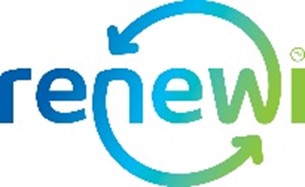Don’t let your recycling go to waste!

Make sure the right waste goes in your recycling bins


P R E S S R E L E A S E
2 July 2024
Don’t let your recycling go to waste
Residents in Barnsley, Doncaster and Rotherham are being asked to help reduce the amount of contamination in recycling bins.
The wrong waste in the wrong bin can stop good material from being recycled. According to recent data from the Local Government Association which represents councils in England and Wales more than half a million tonnes of household recycling a year is being rejected.
When the wrong items go in recycling bins it is called contamination and this can cost the local authority (and therefore taxpayers) a lot of money – up to hundreds of thousands of pounds a year as councils pay the extra cost of having the rejected waste disposed of.
It also means a loss of precious resources as materials cannot be recycled into something new. Recycling materials requires a lot less energy and creates less carbon dioxide (CO2) compared with extracting raw materials – helping us to protect the environment.
For example, reusing aluminium from items such as cans and foil uses 95% less energy than making it from scratch. Recycling paper uses 40% less energy than processing virgin wood fibres. Reduced energy use means fewer carbon emissions.
Some items that need to stay out of recycling bins include:
* Disposable nappies
* Animal waste
* Tissues, wet wipes, cotton buds
* Glass cookware – such as Pyrex
* Plastic food wrapping, carrier bags and greasy takeaway boxes
Check what can go in recycling bins
What can be recycled at home will depend on which local authority area residents live in. The best place to check what you can and cannot put in your bins is your Council’s website or the Recycle Now locator tool https://www.recyclenow.com/recycling-locator
Check what types of plastic are accepted
Although many items are called plastics, there are many different types of plastics with different properties that are used for different things. Therefore, they are recycled in different processes.
Your Council will clearly state what type of plastics they will accept in their recycling. For example, if it states plastic bottles only, do not add any other plastic items such as pots, tubs, and trays.
Some items cannot be recycled at home… but can be recycled elsewhere
Soft plastics like bread bags and crisp packets can be recycled at many supermarkets. Other items like textiles, electricals and batteries can be recycled at household waste recycling centres. If you have a specific item in mind, check your Council’s website or the Recycle Now Recycle an item page: https://www.recyclenow.com/recycle-an-item
Alistair Beattie is the Community Education Liaison Officer based at the award-winning waste treatment facility at Manvers, which diverts 97 per cent of Barnsley, Doncaster, and Rotherham household waste from landfill.
“Residents in Barnsley, Doncaster and Rotherham are putting a lot of effort into helping us recycle more of our waste. We want your hard work to have maximum impact. Just a quick check on what can and can’t be recycled will help avoid the situation where waste is rejected.
“By correctly recycling their waste residents are helping to make a positive difference to protect the environment and make sure precious resources are not wasted.”
Note to Editors: The waste treatment facility at Manvers processes around a quarter of a million tonnes of leftover waste a year from 345,000 homes across Barnsley, Doncaster, and Rotherham, turning it into useful products rather than sending it to landfill.
For further information contact Alistair Beattie or Rebecca Wilson on 01709 761001 or alistair.beattie@renewi.com or rebecca.wilson@renewi.com